Top 10 Posts at SIT for 2019
We look back at some of the highlights of an outstanding year
December 31st, 2019 | School for International Training
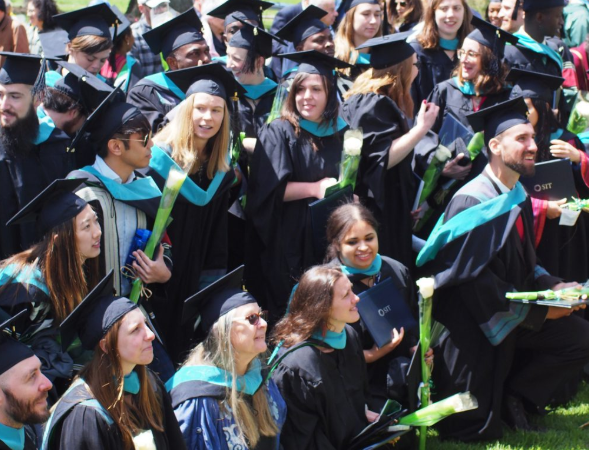
SIT graduates, Brattleboro, Vermont, May 2019
116 newly minted changemakers
The sound of African drums beat a celebratory cadence in both Washington, DC, and Brattleboro, VT, to honor the 116 students who received their SIT Master's degrees during the 2018-19 academic year. These included SIT's Global Scholars – students who had fled their home countries due to political unrest or violence. Driven by the growing refugee crisis around the world, in 2016 SIT created five full scholarships. All five students had completed their degrees as of 2019. “SIT was a life-changing experience, where I established an international family with siblings from all walks of life,” said Fadia Thabet of Yemen, an SIT Global Scholar, speaking at commencement. “At SIT, we celebrated our differences before our similarities. We were reminded that we have each other to hold each other accountable. …. My message of hope to you is you.”
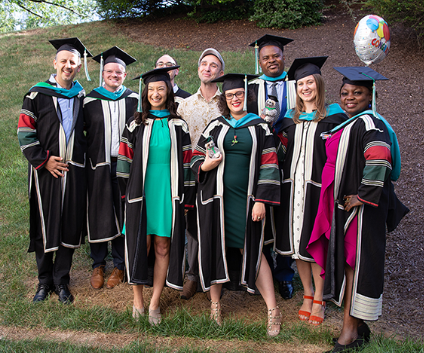
SIT Graduate Institute degree ceremony, Washington, DC, August 2019.
In 2019, SIT also saw its first cohort of nine students graduate from the SIT Graduate Institute's new Climate Change and Global Sustainability Master's programs. In addition, eight students graduated from its hybrid Master’s program in Sustainable Development with a focus on international policy and management. “Both of these programs are first of a kind,” said Dr. Ken Williams, dean of SIT Graduate Institute. The slate of unique Master's degrees are part of an expanding list of international, experiential Master's programs SIT is now offering.

SIT Study Abroad alum and lawyer Yvonne Ochilo
Safeguarding indigenous knowledge
When SIT Study Abroad alum Yvonne Ochilo spent a semester in Kingston as part of the SIT "Jamaica: Gender and Development" program, she gained key insights into how to approach the law. "Western intellectual property laws do not always fit neatly into allowing protections for indigenous peoples, particularly in developing nations," she told SIT. "In addition, some forms of 'traditional' intellectual property such as folklore/stories/songs that are passed down from one generation to the next through oral history have not always been recorded...This presents a challenge to protecting these forms of traditional knowledge." Ochilo, who recently published a paper on the subject, “Keeping Traditions,” in Intellectual Property Magazine, explains how, through skills learned at SIT and as a lawyer, she has become a “voice for the voiceless.”
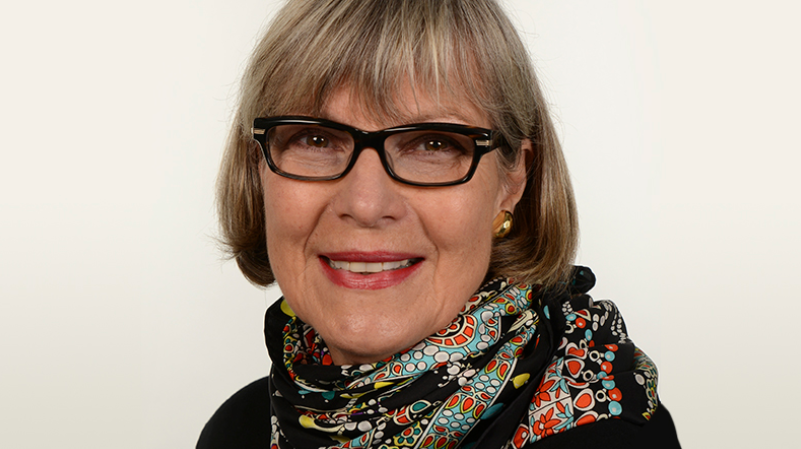
Katharina Zellweger
Breaking down North Korea stereotypes
SIT alum Katharina Zellweger recalls her first trip to North Korea in 1994 before she became Pyongyang Country Director for the Swiss Agency for Development and Cooperation. Since then, she explains, much has changed — and has not — for the people inside North Korea's borders. "If one says 'North Korea,' most everybody thinks of the country’s nuclear weapons program, the Singapore Summit between US President Trump and North Korean leader Kim Jong Un, and starving children. Forgotten are the 24 million ordinary individuals who happen to have been born there, and who are struggling day by day to get by," she said. Two big changes: The emergence of a middle class — and the rising obsession with mobile phones. And for those who wonder whether North Korea poses a realistic threat to the world, Zellweger offers some wise words in this interview.
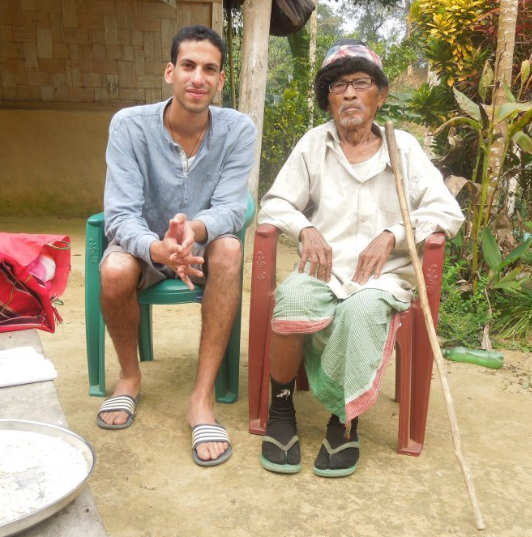
Alice Rowan Swanson Fellow Hadi El Rabbat
Creating 'knowledge centers'
Hadi El Rabbat was an international business major at Stonehill College in Massachusetts in 2012 when he decided to study abroad on SIT’s International Honors Program, Health and Communities: Globalization, Culture, and Care. Over the course of a semester, he lived in China, South Africa, India. And he realized he was much more interested in international studies than in international business. “Although I had almost finished, I realized [business] wasn’t really my thing. I was interested in a different field, one that had to do with development, peace and justice," he told SIT. "So I switched to international studies as soon as I returned." What happened next offered El Rabbat a new vision for his future and led him to explore his origins for the first time.
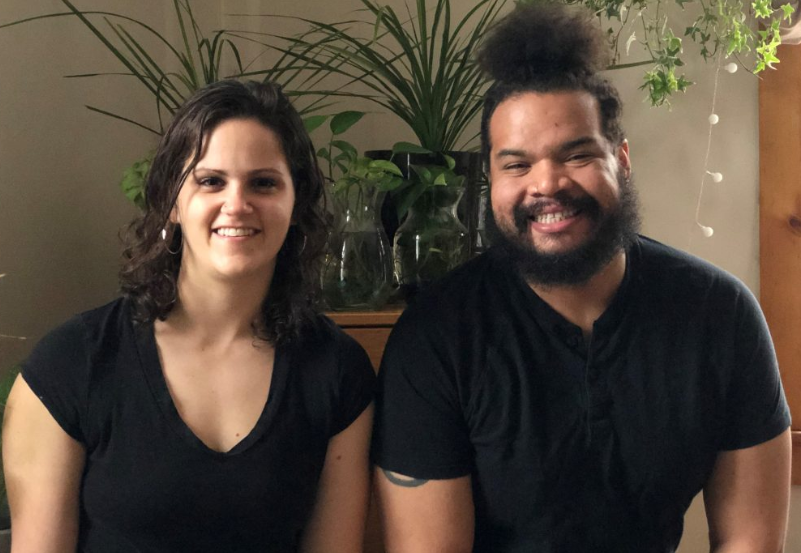
Jordan Ferrick, left, and Fabio Ayala
Sharing restorative justice
SIT students Jordan Ferrick, Fabio Ayala, and Becca Jacobson traveled to Belgium last May to present their work in the field of restorative justice at the International Institute for Restorative Practice annual conference, “Community Well-Being and Resilience.” Just before they left, all three sat down to talk with SIT about their Master's degree practicums and how they viewed restorative justice and restorative practice. As Ferrick said, "People have been practicing this for centuries. And Vermont is leading the country in restorative justice...But I think [it's] our take on small, rural restorative justice practices, influenced by our SIT background and our own Millennial perspectives, that combines the old and the new." In this Q&A, all three reflect on how blending older traditions with fresh approaches has informed their work and their worldview.
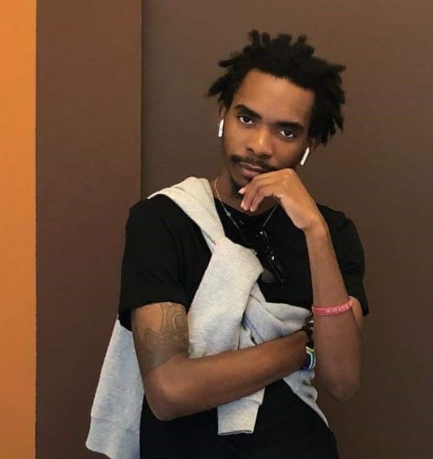
SIT South Africa alumnus Corey Smith
Life plans -- with a benefactor's boost
SIT Study Abroad alum Corey Smith describes how he learned to channel his wide-ranging interests — education, storytelling, activism, racial justice — into writing during the semester he spent in South Africa with SIT. Smith even had a chance to try his hand at international news coverage working as a cub reporter for the Sunday Times in Cape Town. “There were protests every day that we could cover,” Smith said. “We got to really engage with the community, got to really see what it felt like working in a newsroom, having to pitch, having to submit articles in a timely fashion.” Smith also told SIT how he felt when a billionaire CEO suddenly offered to pay off the student loans of his entire 2019 graduating class.
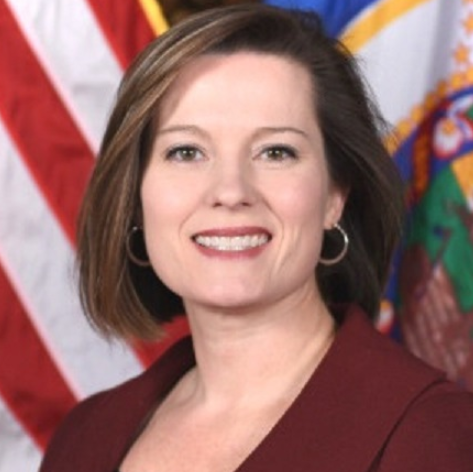
Jaime Tincher, deputy mayor of Saint Paul, Minn.
How lessons inform leadership
From overseeing around 34,000 employees of the state of Minnesota as chief of staff to former governor Mark Dayton to a more recent role as Deputy Mayor of Saint Paul, Minn., Jaime Tincher explains how her SIT experience helped shape her career and leadership style. After studying in Mexico in 1997 and undertaking graduate coursework in conflict resolution, she says she began to pay closer attention to how policy is made and how party politics work. “I saw more clearly the barriers that prevented people from participating in the system, and I wanted to help create opportunities for those who were historically left out," she told SIT. "I asked myself, is it a true democracy if you’re not knocking down those barriers?”
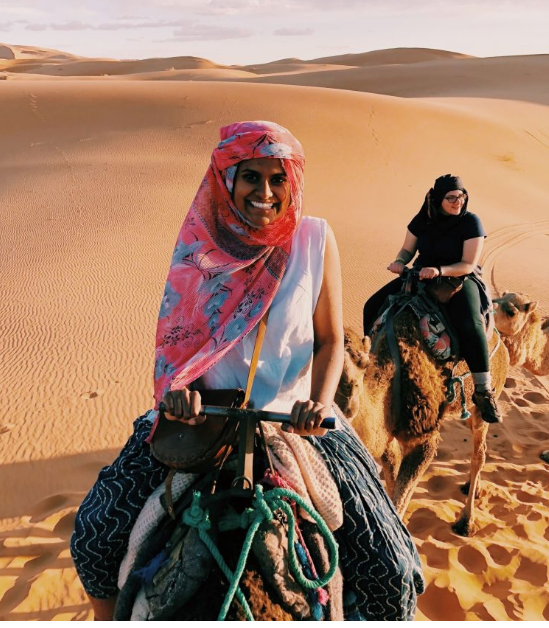
SIT alumna and Notre Dame graduate Melinda Davis
Migration and the Holy See
Notre Dame graduate, Melinda Davis, talks with SIT about her family's cross-continental journey from India to New Orleans, and how her experiences throughout SIT's Morocco: Migration and Transnational Identity study abroad program helped her learn to bridge cultural divides to teach English as a second language to Morocco's young migrant populations as well as Yemeni women. After leaving Notre Dame, Davis's journey has now led to a fellowship with the Permanent Observer Mission of the Holy See to the United Nations. Her work at the Vatican is opening new doors for her, but much of it builds on what she learned about migration and international peace-building through SIT Study Abroad. Here, she retells how her budding interest in teaching stemmed from this one young student's remark.
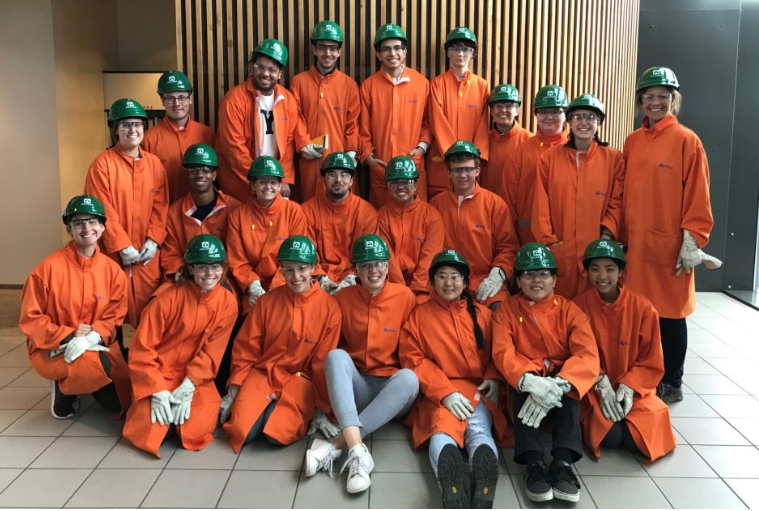
SIT Study Abroad students in Iceland
First net-zero study abroad program
This summer, students with SIT’s Iceland: Renewable Energy, Technology, and Resource Economics banded together to become one of the first-ever study abroad programs to achieve carbon neutrality. Working as a team, they assembled a plan to offset their air and ground travel by planting roughly 220 trees in the greenbelt, or “green scarf,” which surrounds the green-energy city of Akureyri in northern Iceland. “Iceland was once about 25 percent forested and now is only about two percent forest cover, so reforestation is recognized by Iceland to be an important way to achieve its Paris Agreement goals and a carbon neutral future,” noted SIT Academic Director Michelle Stewart. Read on to learn more about what one student from Yale, Nash Keyes, had to say about immersing in a society focused on a sustainable future.
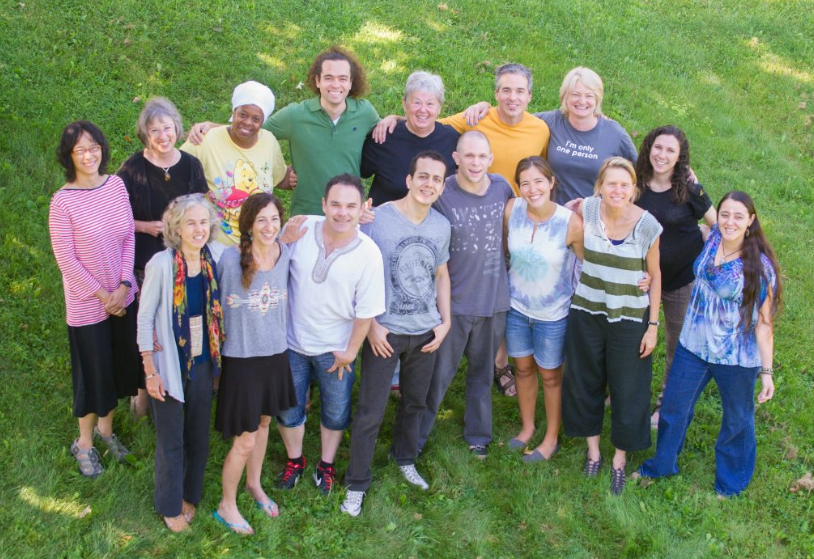
SIT students during their Vermont summer residency for the TESOL MA program
Top in TESOL
SIT was named the No. 1 producer of English Language Fellows in the U.S., with SIT President Sophia Howlett accepting an award from the U.S. State Department at a ceremony this past November. In 2019, SIT also marked the 50th anniversary of the Master’s program that has earned it an international reputation for its experiential approach to teaching English to speakers of other languages, the field known as TESOL. SIT is now offering a certificate program, as well as an online, low-residency Master's degree here in this popular area of study.
